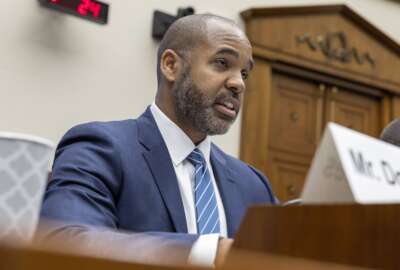U.S. Border Patrol to eliminate nine interior stations across the country
Budget pressures and a change in mission leads to cuts in U.S. Customs and Border Protection. Border stations in California, Montana, Idaho and Texas face...
wfedstaff | April 17, 2015 3:57 pm
By Keith BieryGolick
Special to Federal News Radio
U.S. Customs and Border Protection (CBP) plans to deactivate nine interior border patrol stations to put more focus and resources in areas closer to actual borders.
Border stations in California, Montana, Idaho and six stations in Texas will be deactivated six months after Congress is notified. The closures will affect 48 border patrol members, who will be re-located to nearby stations or sectors.
“To accomplish its mission more efficiently and use its personnel more effectively, CBP has increasingly concentrated its resources in the immediate border areas,” Michael Fisher, chief of CBP’s U.S. Border Patrol, said in a memo to chief patrol agents and division chiefs obtained by Federal News Radio.
Budget shortfall identified
The cuts come after the Office of Field Operations within CBP identified a $129.5 million payroll shortfall for fiscal 2012. The memo estimates that the closing of nine border stations will result in long-term annual savings of $1.3 million, but admits to upfront relocation costs for employees of up to $2.47 million. 
“The majority of those [employees] are deployed to the Southwest border, and are immediately in the border area — approximately 18,000 or so — and another 3,000 or more are deployed to the Northern border and to the coastal borders,” he said.
CBP faces different threats
Along with massive growth, CBP’s mission also has changed. Since 2003, when the Department of Homeland Security formed, the interior enforcement mission transitioned over to Immigration and Customs Enforcement (ICE), Bingel said. “The threats are very different today then from when those stations were established,” he said. “The border patrol is now going to focus on some of the primary threats they are facing today such as the continued actions of Mexican drug cartels, where every available resource can be focused on thwarting that threat, versus threats from 15 or 20 years ago.”
Bingel said another problem is the size of the staffs, which in some cases are only comprised of one or two people. “It’s a management challenge to have these small satellite stations out there that aren’t really connected to the broader agency resources and mission because they are so removed from the sector headquarters, which may be several hundred miles away.”
CBP’s memo stated there is precedent for shutting down border patrol stations. “In 2004, CBP closed the Livermore border patrol sector in California due to overlapping enforcement responsibilities. The deactivation allowed the agency to better deploy and maximize resources.”
Congressional pushback
But not everyone approves of CBP’s chosen course of action. Texas Republican congressman Mac Thornberry, Randy Neugebauer and Michael Conaway wrote a letter expressing their dissatisfaction with the decision to close certain Texas patrol stations. “We strongly agree that it is important to gain better control of our borders. We also strongly believe that removing the border agents from this interior region of Texas will leave our area vulnerable and undermine the overall effort to enforce our laws and secure our nation.”
Although federal personnel will no longer be located in the nine stations, CBP intends to maintain partnerships with ICE and local law enforcement agencies to periodically reassess threats and respond accordingly, the memo claims.
But Thornberry, Beugebauer and Conaway worry about the ambiguity of that statement. “It is our understanding that your agency has not coordinated with U.S. Immigration and Customs Enforcement to develop an active plan to assist local authorities after the closures.” When there are no federal agents immediately available, they wonder what will happen when an illegal alien is discovered. “Will these violators have to be released back into the general population?”
The congressmen close the letter by asking CBP to reconsider their proposal or delay closures until it’s detailed in writing how they plan to assist local law enforcement without immediate federal support.
Keith BieryGolick is an intern at Federal News Radio
RELATED STORIES:
Senators suggest scrapping virtual fence
Winners and losers in DHS 2013 budget request
Tags: Immigration Management Workforce Thad Bingel CBP ICE U.S. Border Patrol Keith BieryGolick
Copyright © 2025 Federal News Network. All rights reserved. This website is not intended for users located within the European Economic Area.





